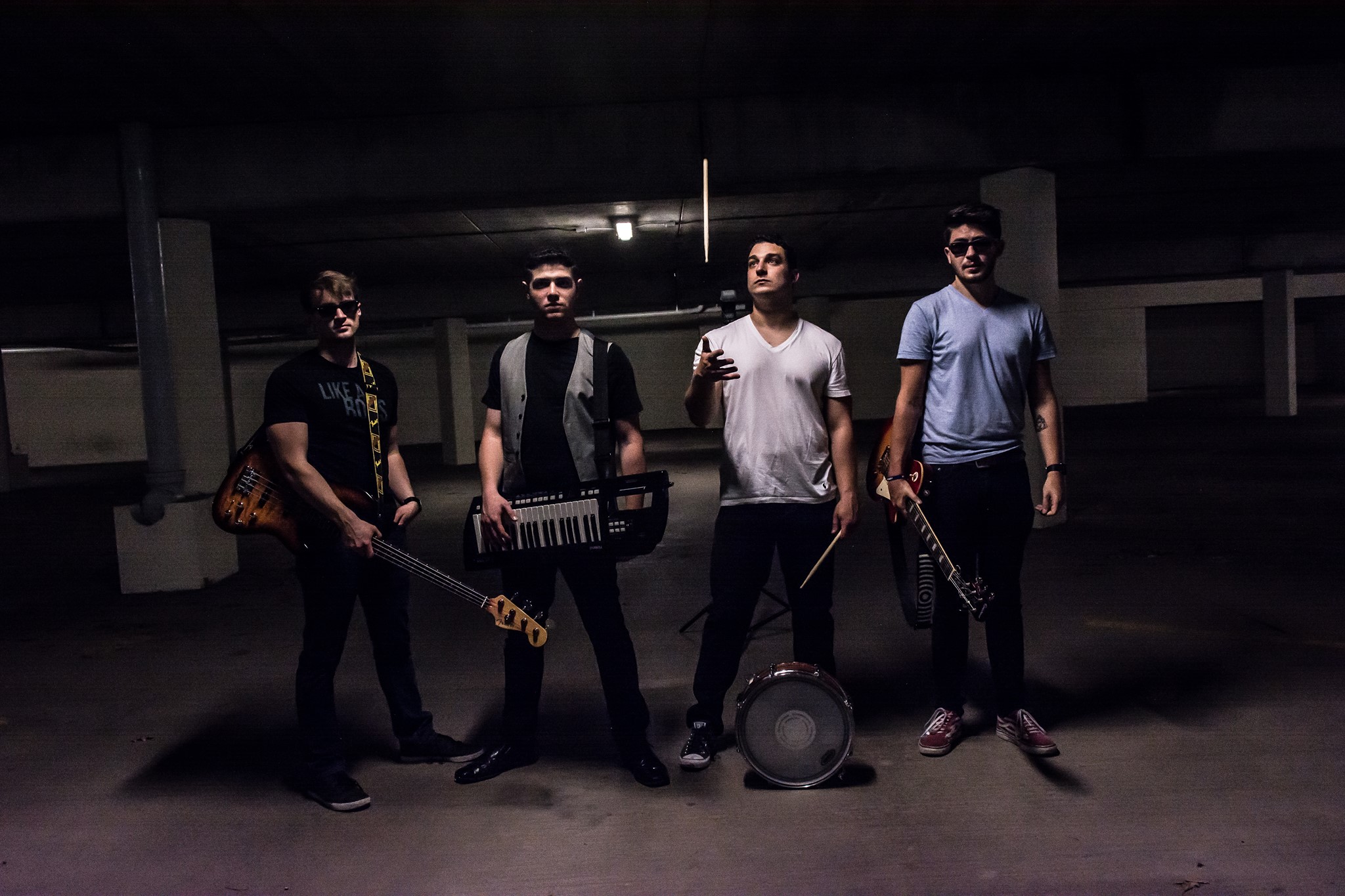Nick Allbrook of Australian psychedelic rock band Pond discusses the making of their highly ambitious tenth studio album ‘Stung!’ in a candid conversation about songwriting, the mythology of Elvis, distance running, connecting with audiences, and more!
Stream: ‘Stung!’ – Pond
Australian psychedelic rock band Pond rode in on a wave of synths and pining lyrics in the late 2000s and managed to rise to the top through their unflinching commitment to risk taking. Their soul and edge is clear in any live performance, particularly their 2017 performance of “Sweep Me off My Feet” at London’s Rough Trade East, where frontman Nick Allbrook prowls through the crowd, leers into the eyes of concert-goers and howls with conviction, “Someooooone sweep me off my feet.”
NME named Pond “The Hottest New Band in the World” in their “Hot List” issue in 2012. However, the band has always held – and to this day, continues to hold – an ethos of not caring about external expectations. Now they are arriving back on the scene with an hour-long double LP bursting with a variety of musical flavors. Released June 21, 2024 via Spinning Top Records, Stung! runs the gamut from songs about the paradoxical ecstasy and anxiety of living on the edge of the apocalypse to the joys of riding a bike.

By this point, Pond has the maturity and experience to shoulder such ambitions and variety. James Ireland has shown his prowess as one of the most innovative drummers in the genre across multiple records, and Jay Watson (“Gum”) you may also know from his work with acclaimed psychedelic band Tame Impala. They have the shared experience to keep in rhythm and step with each other, even as this sprawling album swerves in multiple directions.
The high-water mark of their innovation, in this writer’s opinion, comes with the track “Edge of the World Pt. 3,” the kind of song that cracked any stagnant concrete guarding my inner world and forced it to expand in a way I haven’t experienced since first listening to “Beach Life in Beach” by Car Seat Headrest. The origin of the track involves a holiday trip Allbrook took to east Melbourne, at the twilight of 2019. Ash fell from the sky as Allbrook caught an image of a couple huddled in the street together. He felt moved enough to make a song about finding a sliver of warm kinship amidst the portent of annihilation.
Atwood Magazine recently caught up with Pond frontman Nick Allbrook to discuss the imagery, tone, and inspirations behind the band’s tenth studio album.
Stung! is out now via Spinning Top Records!
— —
:: stream/purchase Stung! here ::
:: connect with Pond here ::
Watch: “(I’m) Stung” – Pond
A CONVERSATION WITH POND

Atwood Magazine: Great to meet you, Nick! Something I really liked about Stung! was the motif of summer imagery, used in an oppressive way. How did the personality of the album develop?
Nick Allbrook: Well, I sort of think it’s a condition of being alive. Being surrounded by great comfort and ease and abundance, but all over-arched with the reality that it’s untenable and finite. But I guess more personally it’s like… I had a pretty hard year while sort of leading up to the writing of this, but then it all moves through, it all comes out in the wash, and I think making the record with the other guys made life feel a lot more bearable and sunny.
And I think that’s kind of a big feeling of the album is like, how can you, when you’ve been hurt so badly by love, and when life seems so cruel, not just to me but in general, it offers so many examples of cruelty around the world. But you keep on going – I mean, how can you not love human beings, and life itself? It’s this endless drive towards wonder and adoration. And I think that’s a big part of the album, it’s like, how can you keep going, but how can you not?
In terms of the creative process, would you say that being something of an observer was important in terms of observing people’s behavior or experiences and trying to find a reason to keep going through them.
Nick Allbrook: Yeah, definitely! Yeah, I mean, there’s a lot of introspection in it, but there’s definitely heaps of observation. It’s just anything that comes from any angle whether it’s inside or out. There are some weird, like, things that I remember watching [like] the Chinese student movement, the “Face Down” movement, and that being a hugely influential thing to look at in some parts of the lyrics. F* knows why, there’s so much stuff that happens, there’s so much stuff that you see, it’s just that some things sting and have a poetic resonance.
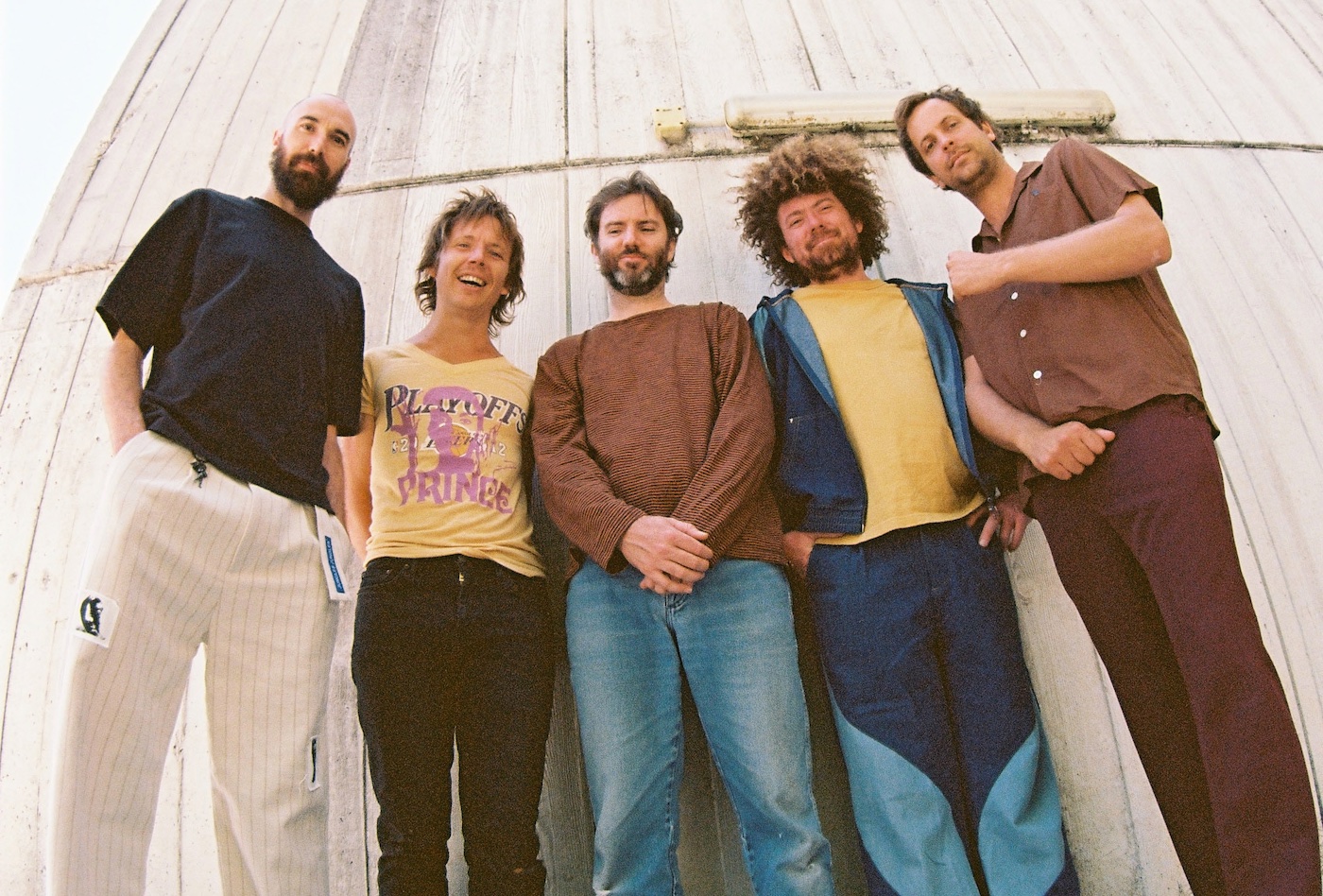
On that topic, I was curious about something. I read an article you did with Groovy Tunes Magazine from when the album 9 was just coming out, and I remember they were asking you about Elvis. Elvis comes up again in Stung!, and I found the way he came up really interesting. The lyrics that jumped out to me were, “No one is clapping, so he whipped out his crotch / Hearing only an echo, saying ‘thank you very much.’”
Where does Elvis as this cultural figure reside in your brain? On one hand he keeps coming up, but on the other hand, it’s also seemingly a critical lens to look at him.
Nick Allbrook: Yeah, I don’t know, it’s so weird isn’t it? Cuz I’ve never been a big Elvis fan. And maybe that’s what affords me a different perspective on him. He’s amazing! He’s like a superhero. He’s become like a God. Like a mythical creature. And the sort of… …I feel weird even calling him “he.” It’s, ya’ know, it’s like an it. But there’s all this symbology around Elvis. A child could draw Elvis and everyone would go “that’s Elvis.” But I suppose the mythical stature of it, and the fact that it relates so strongly to rock and roll, which is my one true love in life. I think in this case, I was thinking about the way that people become sort of facsimile of themselves, of their essence. Like David Beckham, who is in that song as well, who is sort of possessed by society.
And everyone has an Elvis. Everyone sort of has a reality with Elvis that they own. So I suppose I was just thinking a lot about the nature of the individual, and the soul, and identity, and where that resides. And where the real Elvis is and what it feels like when everyone in the world is deleted and there’s just someone who believes themselves to be Elvis, and I suppose… …does that make them THE Elvis? Ya know?
Right. The idea of Elvis has almost overshadowed him in a way. I mean, I’ve always thought it was so fascinating how being an Elvis impersonator could be, like, its own career.
Nick Allbrook: It’s amazing.
And it almost has nothing to do with him as a person. It is crazy.
Nick Allbrook: Yeah, well I spent, I got stuck in Los Angeles for like five months, and wrote that song there. I don’t like to drive in LA. It scares me. Because I don’t wanna get into a prang in a higher car and have to pay lots of money. So I was riding around a bike. And I think just, like, looking at LA so much from ground level like that, I think the sort of, the illusion and plasticness of celebrity was at the forefront of my mind. But also, ya know, the genuine emotional resonance it has for everyone, and how much it makes people cry and scream! ‘Cause it’s true! These things affect me. Ya know? Fandom and music and stuff, it’s f*ing seriously affecting.
That is interesting that it was so affecting for you, because you mentioned Elvis was not a huge influence for you personally or anything, but you were affected by how his music affected other people kind of.
Nick Allbrook: Enormously! That’s right! Yeah, yeah, yeah. Like, I’ve never been a fan of his music; my brother was really into Public Enemy when I was growing up, and I always heard that “Elvis was a hero to most but he never meant shit to me, you see, straight out racist, that sucker was simple and plain, Motherf* him and John Wayne!” so I was always like, ‘Ah, Elvis, he sounds like dick.’ And I never really listened to him. And, ya know, now I’m like “oh yeah, it’s sweet,” I really like “Caught in a trap, ‘cause I love you too much baby!” Wait, is that him?
“Suspicious Minds,” I think that is Elvis, or at the very least he did a cover of it.
Nick Allbrook: Yeah. Beautiful song. Love it! But like you said, yeah, Elvis as a figure has completely changed my life. And I’ve consequently written about him in like, basically every album, which is bizarre.
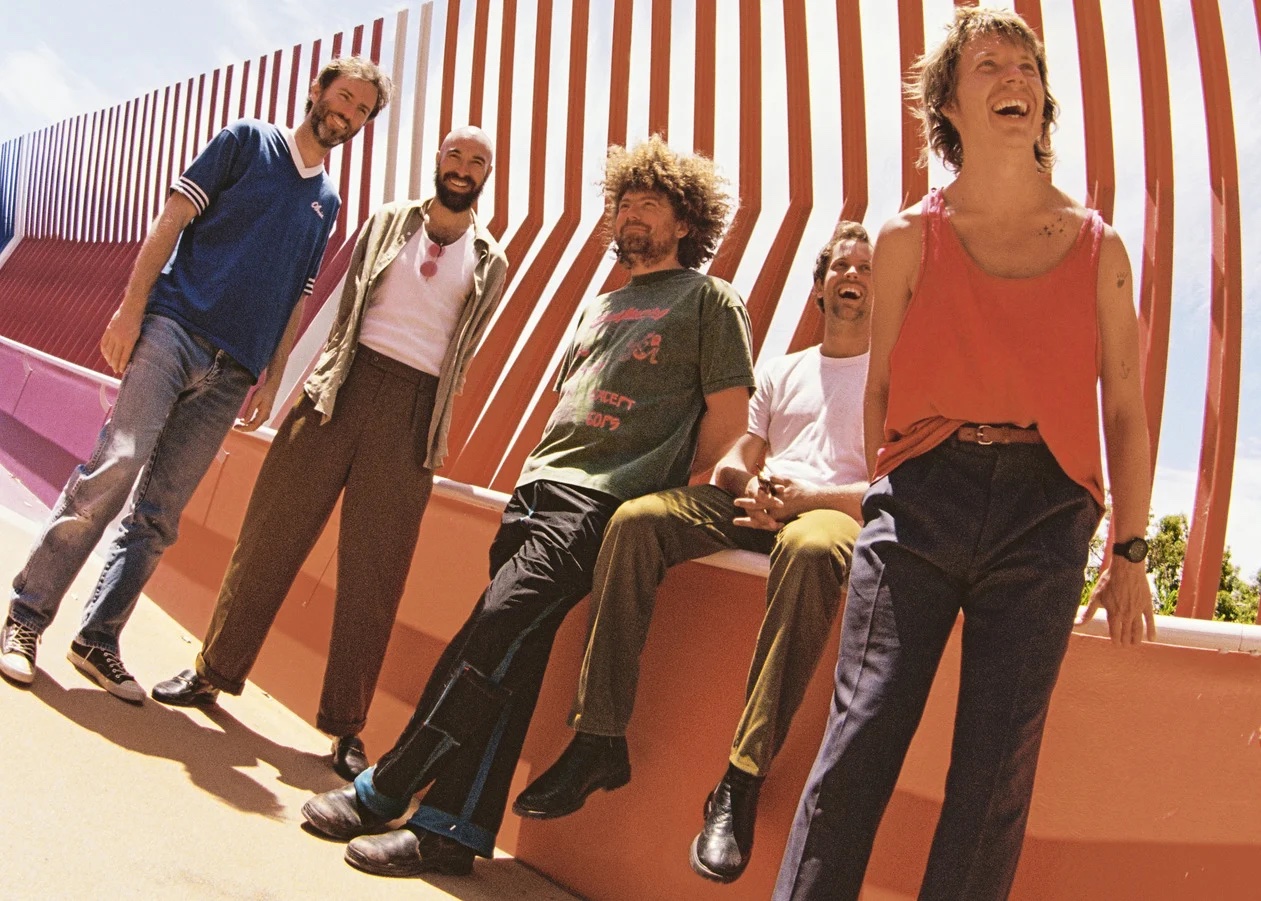
In terms of your relationship to your audience, and in a broader sense the band’s relationship to its audience, would you say that who you perceive the audience the music is for has shifted overtime?
Nick Allbrook: Maybe. I guess at the beginning, we were just kinda writing mainly for each other. Yeah, probably still doing that mainly, to like, give each other a kick. I guess you do think on the new album when we do big flamboyant rock moments, we’re like “aw yeah, they’ll love this,” ya know? (Laughs). That’s about the extent of our like, thinking about it.
If someone introduces, like, an esoteric electric song, we’re like “aw, they’re not gonna’ be happy about this (laughs). But that’s about it.
That’s fair. So it’s almost like a cheeky thing where it’s like “oh they’re not gonna like this” but we’re gonna do it anyway.
Nick Allbrook: Yeah yeah, exactly. But when you do, like “Neon River,” it’s like “ohh, they’re gonna’ love this.”
Well to be fair, I do love “Neon River”!
Nick Allbrook: Yeah we love it! It’s probably my favorite song on the album.
There’s things about the construction of that song that I really like. It uses, I think the term would be “secondary dominant” (chords) at the beginning of the verse, the way that A minor is used. I’m curious in terms of the arrangements of the songs, is there intention behind, like, “we want to express *this*, so this is how we’re going to arrange it, or do the arrangements come from the sessions and what naturally evolves from that?
Nick Allbrook: Yeah, I’d say it just comes from the sessions. It’s a pretty immediate sort of like, following your nose type of thing. Ya know, GUM (Jay Watson) does arrangement stuff, and I know that he probably would have been like, f*in’ around with a cool folk progression, and probably been playing it, and then been like “ah yeah, I’ll do that other thing I was messing around with,” and then boom!, ya know? I don’t think he would have been deeply ruminating on the schism between, like, pastoral folk, and Zeppelin rock or whatever.
In that case then, what would you say provides a sort of internal roadmap in terms of the path that you would take to obtain an authentic aesthetic value? What is sort of your parameter for ‘this feels correct’?
Nick Allbrook: Yeah, that is really hard. I’m assuming you’re a musician.
Yeah I do a little bit of music.
Nick Allbrook: Yeah, I mean, how do you know? Like, how do you know when something is cool or not? You’ve got nothing to go by except, f*, it sounds so, so hippy dippy, but it’s just the feeling of it. That’s like, all you can go on. But luckily we’ve got like a whole slew of mates who really- and we really respect each other and are really comfortable with each other. But generally it’s like, if I write something, and I think it’s a little bit goofy, rarely will the other guys be… It’ll usually be a bit goofy, um, maybe sometimes they’ll be like “that’s cool,” but generally we all agree, it’s like, “let’s either not worry about it, or let’s make it cool.” Sometimes there’s something that comes off as a bit goofy and then you’re like “but it’s got a really great essence” and you need to just pluck it out of it. Yeah, I don’t think there’s any strategy to know, it’s just the sniff of it, isn’t it?
I feel like essence is a great way to put it. It’s one of those things where it’s incredibly difficult to explain in words, but when something works, it’s kind of because of the essence I would say.
Nick Allbrook: Yeah, yeah yeah yeah. I’m glad about that, because that’s mainly what I give nowadays. Like, I’ve slowly, just like backed away from production over the last couple of years, because I can’t be f*ed anymore. I used to be all about it. So now it’s just like, write a song, and then bring it to the rest of the guys, and make it cool and interesting and original. But often, I’ll come with like, the essence, and the lyrics, and a good chorus or something, but it sounds like Tom Petty. And it’s like alright, let’s make it sound more wacky and fun.
Yeah, absolutely. Would you say then on a personal level you feel less pressure for things to be exact from the production perspective? Is that something that used to concern you?
Nick Allbrook: Yeah. I’ve probably also had less to do. So I just muck around. Now it’s just like, can I f*ing get good songs down? Maybe there’s been more of a specification in our roles within the band? Not to make it sound too intellectual or anything, ’cause it’s definitely not, but I think I started feeling like my role was more dancing around at the front of the stage, being an energy hype man when it comes to concerts, and when it comes to records, it’s like, speaking of the kind of, the nugget, the essence of a bunch of songs, I’m not like, toying with the, ya know, resonance coming out of the second tom.
So then it’s almost like how you see your role right now, what do you feel I guess is sort of the dynamic you wanna have with a live audience, like if you feel like you want to sort of hype up an audience and get their energy up and get their excitement up, what does that feel like, when you’re actually in the headspace where you’re doing that?
Nick Allbrook: It’s weird. ‘Cause sometimes it’s just, ya know, you’re just not there, and neither is the audience. But mostly it is, and I guess I just kind of go into a bit of a tunnel vision kind of zone, and just, flail around and try to concentrate on hitting the notes kinda semi-correctly. I don’t know, it’s probably the closest I come to, like, not thinking in my life, which is really special.
Yeah, I do feel it’s important to have something you do where it feels less cerebral, and sort of just heady.
Nick Allbrook: Like physical. It’s almost entirely physical when it comes down to it. And everything is moving so white-knuckle fast, that I often don’t even know what’s going on or what’s happening. I do put a lot of import on the experience that me and the audience have of actually being connected as human beings in the same room. Ya know, I suppose it’s gotten more important with everything being so siloed because of the internet, and so much experience being done through digital avatars, and ya know, banking and dating, for f*’s sake, and friendship and music sharing, everything being done on a digital interface.
If I can have a moment with an audience, it feels so good for me. And it really makes life worth living.
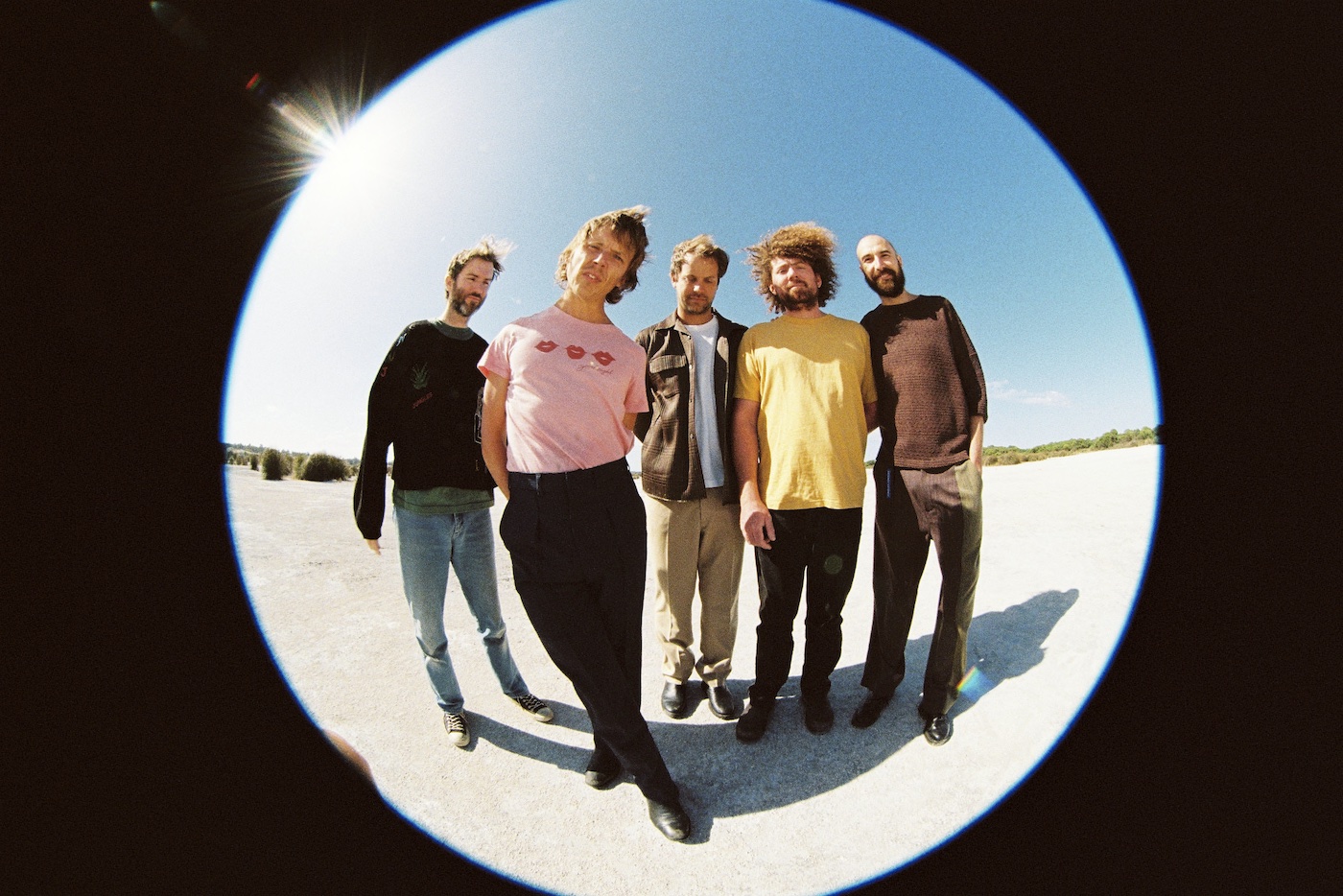
It seems you have this ability to mirror energy. I can totally understand having like a visceral live experience being something that’s really important to you. When you’re in person, it reminds you that you’re human. And it’s the same with even like, exercising or something. It can remind you that you’re a person because it’s taking a physical toll.
Nick Allbrook: Exactly. Exactly. I think about running in the same way. I do a lot of distance running. It’s exactly the same thing, it’s siphoning you into the physical and the immediate, because it’s very hard to think about the past or the future or the sort of extrinsic effects of whatever your actions are. I feel kind of the same way with gigs, good ones, when shit goes wrong, or when you fall on people, it’s really good. It means a lot.
It’s a meaningful experience. I read that you do a lot of running on the shore on days of recording. Do you think that helped with the headspace of the album?
Nick Allbrook: Yeah! I mean, it had to have had an effect on it, I guess. I don’t know how. I wrote Stung! While I was running. I wrote the chorus while I was running, and then wrote the rest of it while I was mowing someone’s lawn. But yeah, I don’t know. I don’t know if it did. It must have, because I do it all the time. And when we were recording the second part of the album down South in like a really beautiful place on the coast of Southwest Australia, I could go for a really long beautiful trail run everyday. I don’t know if that had any effect on it. I feel like it gives me a sort of emotional armor to be pretty happy. So that’s helpful. It’s really helpful on tour as well, when your patience and emotions get tested.
Kind of switching topics for a second, but I was listening to this interview you were doing with Montreal Rocks, and you mentioned that a really formative music experience for you was your dad in the car playing The Who song “Anyway Anyhow Anywhere.” The song “Boys Don’t Crash” really reminded me of early Who stuff. For the process of Stung!, how far back into your mental recesses were you going to pull musical influences?
Nick Allbrook: As far as it takes. There’s nothing really off limits. I think that was the thing with this album, it’s like, with previous ones, we might have had a song like “Boys Don’t Crash” and been like, “It’s a great song, it’s cool, but it doesn’t really fit the vibe of the album, so let’s leave it.” Ya know? With 9, we had kind of this weird idea for the aesthetic of the album, the full Reznor theme. And it doesn’t sound anything like it, but ya know, that’s what we kept saying.
But with Stung! we were just like, ya know, whatever. Sometimes it feels like we might sound like a dress-up party or something, but it’s just what we like doing. Yeah, I don’t know, we love all that music. We love Sabbath and The Who and Aphex Twin. So whatever came out, we were like, “Ah, if it’s good let’s put it on” and not put any limitations on it. And it being just like a big diary.
In terms of current music that is out, what are you listening to these days?
Nick Allbrook: I really love this band called Walt Disco from Scotland, they’re amazing. They’re so cool. I really love Orville Peck, I listen to that album Bronco so much. Obsessed with this Melbourne band called The Slingers. Love The Slingers. And Jockstrap from the UK. They’re one of my favorite bands. They’re f*ing incredible. They’re inspiring and weird.
At the end of the day, what are you hoping people get out of Stung!?
Nick Allbrook: I don’t know! I mean, the dream is the feeling I get, like that Orville Peck album. Where I’m listening to it by myself, and I just feel like… I mean, it’s sort of the high watermark of a musical experience when you feel great and you feel like someone is speaking directly to you and you’re the only person in the world who understands that experience quite as intimately as the person who is writing it. And all the music feels good and that’s like my ideal profound musical experience when I’ve got my headphones on and I’m doing some menial task like whipper-snippering someone’s lawn and it just feels magical or going for a walk. When you’re walking home from the pub after a couple of pints and under the stars and the lyrics touch you deeply and the music elevates you… If someone had that with our music, I’d die happy, ya know?
I would say I had that with “Edge of the World Pt. 3,” that one really spoke to me.
Nick Allbrook: There you go! That’s so lovely, thank you!
— —
:: stream/purchase Stung! here ::
:: connect with Pond here ::
— — — —

Connect to Pond on
Facebook, Twitter, TikTok, Instagram
Discover new music on Atwood Magazine
© Michael Tartaglia
Stung!
an album by Pond

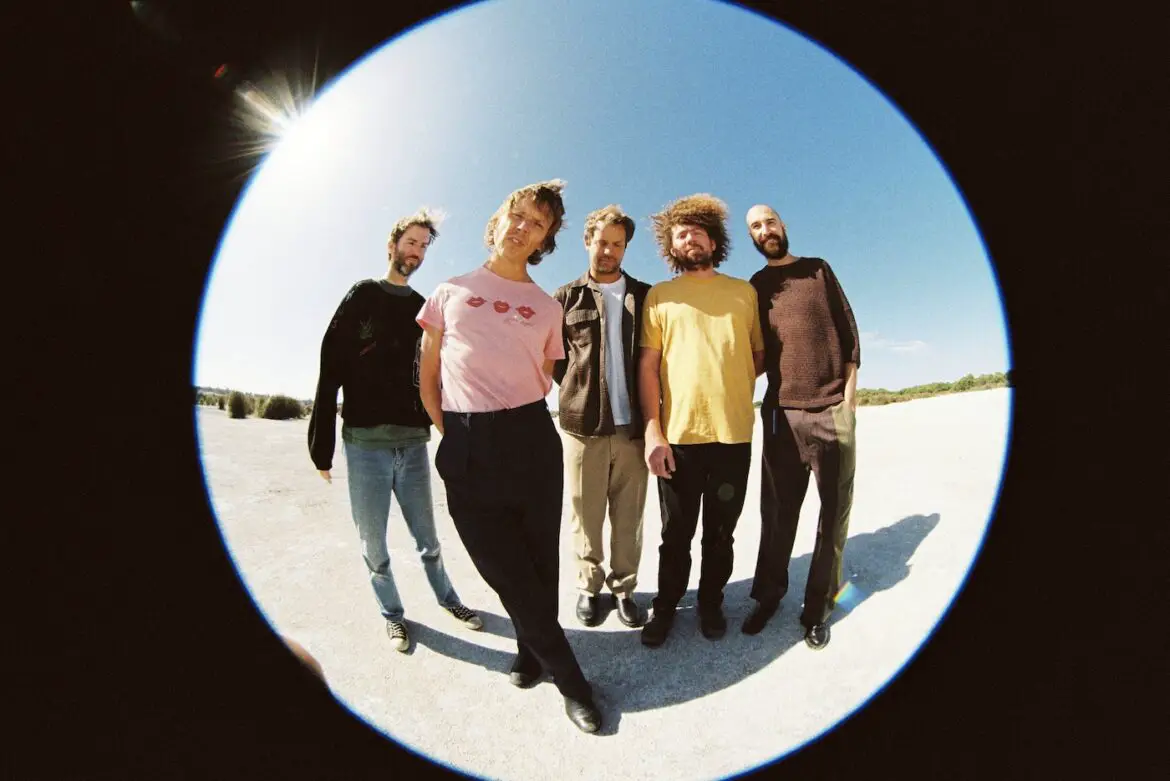
 © Michael Tartaglia
© Michael Tartaglia




